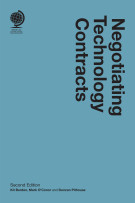New LCIA Arbitration Rules 2014 - what are the key changes?
02 October 2014

Author bio coming soon

Author bio coming soon
Ed Poulton and Steve Abraham brief readers on the new arbitration rules of the London Court of International Arbitration (LCIA), that entered into force on October 1 2014.
The new arbitration rules of the London Court of International Arbitration (LCIA) took effect on October 1 2014. They will apply to any arbitration commenced after October 1 2014 (irrespective of when the arbitration agreement was made), unless the parties agree otherwise. The LCIA is one of the world's prominent arbitral institutions and has spent the last few years reviewing its rules.
Jacomijn van Haersolte-van Hof, the new LCIA director general, has stated that the aim of the new rules is to modernise, but not revolutionise, the rulebook. While the structure of the former rules remains, the reforms seek to address three central issues:
- Procedural efficiency - time periods have been reduced and tribunals have new obligations to act expeditiously;
- Urgent relief - a new procedure allows for the appointment of an emergency arbitrator; and
- Professional integrity - sanctions will be imposed if legal representatives do not comply with new conduct provisions.
The key changes are set out below, grouped in accordance with these themes.
|
Procedural efficiency |
||
|
Delivery of documents can be electronic |
Articles 1.3 |
Parties now have the option to submit LCIA requests and responses in electronic format (using standard LCIA forms), in hard copy or both. |
|
Shorter deadline for response |
Article 2.1 |
The period of time that parties have to respond to a request has decreased from 30 days to 28 days. |
|
Arbitral candidate written declarations |
Article 5.4 |
The previous rules required candidates to make written declarations attesting to their impartiality and independence. Now candidates must also declare their willingness to devote sufficient time to ensure the arbitration is conducted expeditiously. |
|
Default appointment of sole arbitrator or three-member tribunal |
Articles 5.6 |
The LCIA’s default appointment of a sole arbitrator or three-member tribunal will now be made 35 days from the start of arbitration, instead of 30 days from service of the request on the respondent. In exceptional circumstances, the LCIA may now appoint more than three arbitrators for a tribunal. |
|
Time limit for challenging arbitrator |
Article 10.3 |
The deadline to challenge an arbitrator’s appointment has been reduced to 14 days from the formation of the tribunal, or within 14 days of becoming aware of any grounds for opposition. |
|
Timetable for award |
Article 15.10 |
Tribunals are now obliged to make final awards as soon as reasonably possible following last submissions. The award must also be served in accordance with a timetable that has already been notified to the parties and the registrar. |
|
Consolidation |
Article 22.1(ix) |
Provided that the LCIA agrees, tribunals can now consolidate one or more arbitrations into a single arbitration, where all conditions are satisfied. |
|
Urgent relief |
||
|
Emergency arbitrator |
Article 9B |
Urgent interim relief may now be granted before the formation (or expedited formation) of a tribunal through the appointment of a temporary sole arbitrator. The party must make a written application to the registrar setting out its reasons for requiring emergency relief. Upon approval by the LCIA Court, an emergency arbitrator will be appointed within three days of receipt of the application. The claim must be decided as soon as possible, or within 14 days of the arbitrator’s appointment. The emergency arbitrator may decide the application without a hearing, and once a tribunal proper is formed it may vary, discharge or revoke any award made by the temporary arbitrator. |
|
Professional integrity |
||
|
Legal representatives |
Article 18 |
Parties must ensure that that their legal representatives, appearing by name before the tribunal, have agreed to comply with the new General Guidelines for the Parties’ Legal Representatives (contained in an annex to the rules). If a tribunal finds that a representative has violated the conduct provisions, the representative may be reprimanded, cautioned or instructed by the tribunal to take any necessary measures to fulfil the required duties. Representatives must be granted the opportunity to answer any complaints before sanctions are imposed. |












Any comments - send us an email